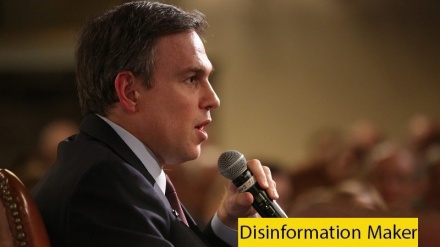NATO no longer serves American interests
Quite simply, it makes no sense for U.S. taxpayers to subsidize the defense of nations capable of defending themselves. Shared interests will continue to justify military cooperation. However, the alliance as today constituted no longer serves American interests.
We have prepared an article for you in this regard, written by Doug Bandow, senior fellow at the Cato Institute, specializing in foreign policy and civil liberties. This article has been published in the Antiwar website under the heading: NATO No Longer Serves American Interests.
President Donald Trump returned early from the London NATO summit. Staged to satisfy British Prime Minister Boris Johnson—the official 70th-anniversary meeting was held in April—the latest gathering featured only one, mercifully short, session, to reduce the likelihood of a Trump eruption.
Even so, before arriving he improbably chided French President Emmanuel Macron for being “nasty,” “insulting,” and “disrespectful” in suggesting that the alliance suffered from “brain death.”
Then the session’s minimal substance was overshadowed by the president’s personal spat with Canadian Prime Minister Justin Trudeau.
Of course, the assembled leaders filled their limited time together with happy talk. The greatest alliance ever is more necessary than ever as Europe faces the greatest security challenges ever.
The Europeans are spending more and cutting Washington’s burden. NATO is preparing plans both to defend its members from conventional attacks and confront new threats.
This is fantasy. A very pleasant one. But fantasy nonetheless.
NATO was formed in 1949 to shield European states from Soviet aggression as they recovered from World War II. The U.S. was only supposed to assist European governments in their defense efforts.
For instance, Secretary of State Dean Acheson promised Congress that it would not need “to send substantial numbers of troops over there as a more or less permanent contribution.” Dwight D. Eisenhower, past wartime allied leader, first NATO commander, and future Cold War president opposed providing a permanent U.S. garrison which, he predicted, would “discourage the development of the necessary military strength Western European countries should provide themselves.”
Alas, these sentiments were ignored as the U.S.S.R. tightened its control over Central and Eastern Europe. The Europeans recovered economically but failed to increase their defense outlays accordingly. Washington maintained its dominant military presence while constantly urging its allies to do more. They routinely said yes but did little.
After the Warsaw Pact and the Soviet Union dissolved NATO’s survival seemed uncertain. So officials suggested that the transatlantic organization shift to, in former Deputy Secretary of State Robert Zoellick’s words, “new missions that will fit the new era.”
For instance, Robert Hormats, another lengthy public official, proposed that NATO shift to promoting “student exchanges, to fighting the drug trade, to resisting terrorism, to countering threats to the environment.” David Abshire, onetime U.S. ambassador to NATO, suggested coordinating “the transfer of environmental-control technology to the East.” Ultimately the alliance decided to expand its membership, even though the enemy had disappeared. Doing so violated multiple assurances given to Moscow.
NATO also initiated “out-of-area” activities, which meant defending other than member states. This ironically turned the pact into an offensive instrument, first used to dismember Serbia in 1999.
In essence, NATO had gone from a means to an end, with war the new means. Said Sen. Richard Lugar, then chairman of the Senate Foreign Relations Committee, the organization would “go out of area or out of business.” And, as public choice economists would predict, no one involved in the alliance wanted the latter.
The Soviet Union’s collapse triggered European disarmament, which in turn intensified American demands for greater burden-sharing, which the Europeans continued to ignore.
The process continued for years, demonstrating, perversely, that the less Europe did the more America would. Hence the bizarrely named “European Reassurance Initiative”: the Europeans were essentially promised that even if they did nothing Washington would remain at their side—though whining all the way. U.S. policymakers appeared to accept the need to subsidize the Europeans in order to keep them dependent. Washington opposed any proposals for independent spending and action, preferring that Europe do more, but only under America’s direction.
The alliance continued to add members. Most recently it accepted Montenegro, with North Macedonia awaiting treaty approval by the 29 current members. Next up, the Duchy of Grand Fenwick, featured in the novel The Mouse that Roared!
The latest out-of-area wars have been distant, unconventional wars: Afghanistan, Libya, and Syria, of which the latter triggered French President Emmanuel Macron’s complaint about a lack of allied coordination.
Some NATO fans call the organization a “global alliance,” presumably ready to act as global cop. In every case, of course, the heavy lifting inevitably falls on Washington.
Every recent president criticized Europeans for failing to make sufficient contributions for the common defense. Defense Secretary Robert Gates suggested that the alliance itself was at risk, since “there will be dwindling appetite and patience in the U.S. Congress, and in the American body politic writ large, to expend increasingly precious funds on behalf of nations that are apparently unwilling to devote the necessary resources ... in their own defense.” President Trump expressed similar sentiments, though more crudely.
The burden-sharing debate is unproductive. The issue should be burden-shedding. Even when President Trump does the right thing, he does so badly. So it is with NATO. But the alliance’s “brain death” reflects its inherent problems, not his dreadful management.
Quite simply, it makes no sense for U.S. taxpayers to subsidize the defense of nations capable of defending themselves. Shared interests will continue to justify military cooperation. However, the alliance as today constituted no longer serves American interests.
NATO’s problems are many and fundamental.
First, America and Europe no longer face an existential threat, let alone a common one. Which makes united action by such a diverse membership so difficult. Russia is no Soviet Union.
Russia’s, Europe’s, and America’s interests often clash—they understandably have different perspectives on economic predominance in Ukraine—but most such issues are of only limited importance.
Even the disputes over Georgia and Ukraine are peripheral matters for Europe and America. NATO expansion moved the transatlantic alliance a thousand miles eastward.
Second, most Europeans don’t appear to fear for their security.
Third, significant military spending increases—as opposed to incremental movement by some states toward NATO’s two percent objective—are unlikely.
Even Secretary of State Mike Pompeo admitted that when he asks Europeans to do more, “they say ‘It’s tough. Our voters just really don’t like to spend money on defense’.” This is an eminently sensible response, given the absence of a serious threat and Washington’s oft-demonstrated determination to defend the continent, no matter what. As a share of GDP European military expenditures, last year ran 1.51 percent, the same in 2012. The future is not likely to be much better.
Military spending by the continent’s small states has little impact on overall spending while the five most economically significant European countries range from awful to unimpressive.
Most notably, Germany was at a dismal 1.23 percent of GDP last year. Moreover, the Bundeswehr’s readiness is terrible. Two years ago the Rand Corporation estimated it would take a month for Berlin to mobilize a heavy armored brigade.
In January Bundestag Military Commissioner Hans-Peter Bartels reported that few of the Bundeswehr’s shortcomings had been fixed, despite increased expenditures: “There is neither enough personnel nor materiel, and often one confronts shortage upon shortage.” Having previously agreed to hit two percent in 2024, Chancellor Merkel now says Berlin will do so in the early 2030s.
Even if her latest assurance was credible, her current coalition faces potential collapse and she might be out of office as early as next year. If the Left forms an upcoming government military outlays are likely to go into reverse.
Fourth, the Europeans know that they can rely on the U.S. to act irrespective of how little they contribute to their militaries.
For years, Washington has whined, complained, demanded, begged, and insisted that its allies do more, without noticeable effect.
Even when he and past presidents insisted that America’s allies do more, their administrations have conducted business as usual and emissaries have visited Europe dedicated to “reassuring” even Europe’s laggards of Washington’s eternal commitment to defend the continent no matter what.
Virtually every Trump appointee at State and Defense has undercut the president’s dramatic rhetoric by insisting on America’s unshakeable commitment to maintaining the Pentagon’s defense dole, actually increasing the money spent on and troops deployed to Europe.
Fifth, Europeans are able to defend themselves. Although maybe not easily with their current force structure. German Foreign Minister Heiko Maas insisted that “Without the United States, we are currently unable to protect ourselves.” Yes, currently, because Europe does not spend more and does so more effectively.
NATO Secretary-General Jens Stoltenberg went further, contending that “we need to avoid any perception that Europe can manage without NATO, because two World Wars and the Cold War taught us that we need a strong transatlantic bond to preserve peace and stability in Europe.” He apparently hasn’t noticed that fascism, Nazism, and communism have disappeared from the continent. The greatest barrier to the Europeans managing without America’s aid is their lengthy dependence on the U.S. That makes the transition more complicated and perhaps traumatic, but not impossible.
Sixth, many Europeans don’t want to defend each other, or America. In a YouGov survey earlier this year, only 42 percent of French, 53 percent of Germans, and 59 percent of Britons believed the alliance had an important role to play in the continent’s defense. Almost uniformly, Europeans were more concerned about terrorism, which the alliance is ill-equipped to handle, than invasion. The willingness of people in NATO members to aid allied states varied dramatically, with support in some cases falling into the teens. There was inconsistent backing for military action even in the most important alliance members. For instance, the majority of French and British were mostly unwilling to defend other states, except each other.
Seventh, as long as NATO exists, talk of a European military, most obviously under the European Union, is nonsense. Existing governments are not willing to spend substantially more on their own forces.
They won’t make significant increases to an existing alliance despite persistent browbeating by Washington and NATO officials. Substituting acronyms won’t convince Europeans to do more. Even France is unlikely to hike military outlays for both NATO and the EU. Only as an alternative to the transatlantic alliance does an EU-provided military make sense. Or NATO could be transferred to European control, with the U.S. becoming an associate member, to promote cooperation when in both the continent’s and America’s interests. However, given European attitudes today, the continent cannot easily support one military alliance, let alone two.
Finally, America’s fiscal situation continues to deteriorate.
Last year, the federal budget deficit ran nearly a trillion dollars, the highest since 2012, after the U.S. fiscal crisis. The Congressional Budget Office expects the tsunami of red ink to continue, with rising national debt and annual interest payments. As the U.S. population continues to age and health care costs continue to rise, more resources will be diverted to Social Security, Medicare, and Medicaid. The only other areas to cut will be interest, which would require repudiating the debt, domestic discretionary outlays, which already have been reduced and account for barely 15 of total outlays, and the Pentagon. Elected officials are unlikely to place the interests of European nations before those of America’s elderly.
Although the Republican Party remains dominated by establishment interventionists, Democrats are divided on foreign policy. Politics is likely to increasingly shift against those advocating an expansive American global role. An increasing number of politicians are likely to follow Donald Trump in challenging a defense policy that has become an international dole for prosperous and populous allies. Especially when the latter demonstrates a well-developed sense of entitlement.
AE/SS



